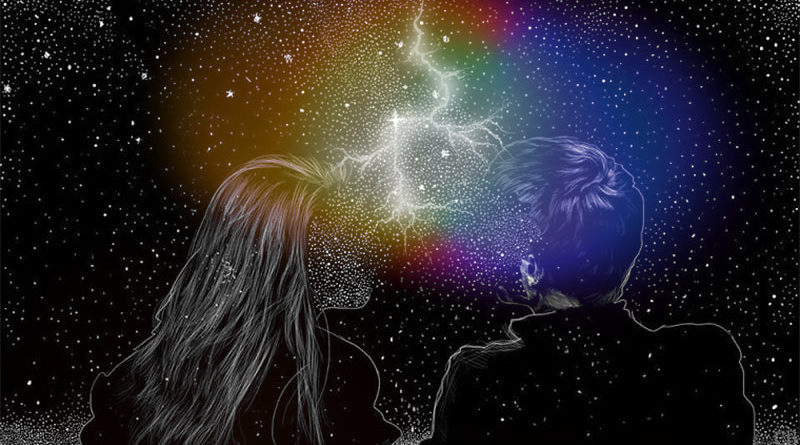Whether there’s a difference between the soul and the spirit has been the subject of debate for centuries. Even if you don’t have a Christian background or biblical roots, you probably believe that you consist of a mortal body and an immortal self. That, for you, could mean the soul, mind, spirit or any combinations of the above.
A few ancient languages had separate words for soul and spirit, but the majority coined them much later. For example, early Hungarian Bibles had one word for soul and spirit; their word for spirit was invented in the 1700s. Meanwhile, Greek had “psyche” for the soul and “pneuma” for spirit, while Hebrew had “nefesh/nephesh” for soul and “ruach” for the spirit.
This article explores these two concepts from Biblical and philosophical perspectives. You will learn the different views regarding the location of the soul and spirit within the body. Additionally, you will understand how these two concepts impact your actions, reactions, and self in general.
Making The Distinction: Why Is That Important?
Why should you want to understand the difference between the soul and spirit and their influence on your actions? The most straightforward answer is that drawing this distinction will give you more control over how you respond to life situations.
Understanding your immortal self and its attachments and movements creates a sense of security. Knowing how you derive your sense of self gives you the freedom to explore new ideas, relationships, and opportunities. Of course, you will understand the pain that comes from building secure attachments, which is the flip side of having a sense of belonging.
Understanding the fluidity of your soul and spirit and how they influence the body’s expressions is necessary for a meaningful existence. Your spirit and soul impact your body in different ways, and the body exerts its influence on the two entities as well. You can learn to subdue your initial/primal reactions to assess situations deeply for better decisions and actions.
Biblical Definition of Soul
What is the soul? The answer to this question is anything but simple, even if we only consider the Biblical context. The word “soul” is used more than 780 times in the Old Testament, and its Hebrew translation is “nephesh“.
There are several meanings of “nephesh” according to the contexts of the passages where it occurs. Some of them are not directly equivalent to the English “soul”. In the King James Version, there are 28 words explaining the different contexts of “nephesh” in the Old Testament.
In the New Testament, which was written in Greek, the word “psyche” appears 103 times. Modern definitions of “psychology” are rooted in this word – the knowledge of the psyche. Below are some meanings of “soul” as used in the Bible:
A Person
Prophet Ezekiel says that the soul that sins shall die, which merely translates to the person (Ez. 18:20). Peter also mentions that eight souls were saved from the flood (1Pet 3:20).
Life
Gen 1:30 says that all creatures have a living soul, i.e. life. King Herod sought to take Baby Jesus’ “life” (Mt 2:20).
Mind
The soul is commonly characterized as the emotional and intellectual aspects of a person (Job 30:16, Gen 27:25). It is the immortal part of the person fashioned in God’s image (Gen 1:26), and it can exist after the mortal body dies (Mt. 10:28).
What Is a Person’s Spirit – The Biblical Definition
In the Old Testament, the Hebrew word for spirit “ruach“, appears 378, and its literal translation is “wind” or “breath”. The Greek word “pneuma” appears 379 times in the New Testament. Like the soul, the spirit also has several meanings in the different contexts it appears.

The Air That We Breathe
This literally means a person’s “breath”. It is the word used to describe how the Queen of Sheba was “breathless” when she saw the grandeur of Solomon’s kingdom (1 Kin 10:4-5). It also means “wind” as in chasing after wind in Eccl. 1:14&17.
Non-Physical Being
Ruach in the New Testament is also used to depict a non-material or non-human being, such as God Himself, who is Spirit (Jn 4:24). Angels are also spirits (Heb 1:14) in nature.
A Person
“Spirit” can also be used as a synecdoche (a part representing the whole) of the entire person. John, in 1 John 4, asks believers to test the spirits, because not all spirits are of God. In this case, the spirit refers to persons, as he says many false prophets have gone into the world.
Soul
The “spirit” may also be the inner man (2 Cor 4:16), the part that is being renewed daily and is made in God’s image. In this context, it becomes very similar to the soul. Proverbs 20:27 says “The spirit of man is the candle of the Lord”, which is the same as the soul in the context.
Attitudes
Spirit may also refer to a person’s attitudes and disposition. The New Testament talks about a quiet and meek spirit (1 Pet 3:4), a spirit of fear (2 Tim 1:7) and a spirit of gentleness (Gal 6:1).
Putting Things Clear
The Biblical definition of the spirit is the intangible part of the person that communes with God. It does not have a direct manifestation in the world as the soul does. Biblically, a person’s spirit can be dead (unbelievers) or alive (believers), and yet their bodies remain alive. The spirit is the part that enables us to know, worship and connect with God.
The soul, on the other hand, holds the life of a person, but it is itself immortal (Mt. 16:26 – How shall it profit a man to gain the whole world and lose his soul? – meaning his eternal life). This means the body dies without the soul, but the soul can live on after the body dies. It is in the soul that the essence that makes a person is found – the mind, will, intellect and emotions.
Other Differentiations of Soul and Spirit
There are subtle differences between interpretations of soul and spirit from culture to culture. Many cultures recognize that the soul survives the death of the body, and some attribute souls to all living things. Differences come in considering their relation to the body and their mortality and origin.

Ancient Chinese and Egyptians believed in a dual soul which survived physical death. The Egyptians had ka, which remained near the body after death and ba, which went to the region of the dead.
The Chinese had the po and hun or yin and yang: the former remains in the corpse while the latter leaves and becomes the object of ancestral worship. The two cultures’ beliefs are almost the same as the Biblical distinctions.
Ancient Greeks had many philosophies according to their philosophical schools of thought. Epicureans believed that the soul was made up of atoms like the physical body. Platonists believed the soul to be ethereal or immaterial. Aristotle had an obscure concept of the soul, but he did not separate it from the body.
After the Middle Ages, there were disputes on the soul and its relation to the body. Descartes believed the soul to be synonymous with the mind. Benedict de Spinoza believed the soul and body to be two aspects of a higher reality.
Immanuel Kant believed the soul exists as the manifestation of reason, ethics, and religion. Finally, William James thought that there was no such thing as the soul, only a collection of psychic phenomena.
On immortality, Pythagoras held that the soul was divinely originated and existed before and after death. Socrates and Plato accepted that the soul is immortal, and Aristotle considered only a portion, the intellect, to be immortal.
Early Christian philosophers adopted the Greek concept of the soul’s immortality. They added that the soul was God-created and infused into the body at conception. Epicurus believed that both soul and body ended upon physical death.
Hinduism separates the soul into the “atman” or the universal, eternal self and the “jiva” which is the individual soul. The jiva or jiva-atman is eternal but is imprisoned in a physical body at birth. Upon death, the jiva-atman passes to another existence determined by karma (cumulative consequences of one’s actions on earth).
Some Hindus believe in an eternal cycle of death and rebirth, while others believe that the cycle replays until karmic perfection of the soul is attained. Buddhists negate both concepts, and assert that any sense of individuality or eternity of a soul is an illusion. They believe that everything is in a constant state of flux, and no state is abiding or self-existent.
There are many more theories on the soul and spirit, including teachings of Islam, Ba’hai and even atheists and scientific skepticism. Atheists do not believe in the concept of a soul; they use diseases like Alzheimer’s and brain lesions to prove that personality is material rather than immortal.
Where Is The Soul in the Body?
If the soul is the seat of the will, emotions, memory, and personality – the things which distinguish us from each other – it must have a physical component. According to Descartes, the mind and soul are one, but very different from the body. He localized the mind to the pineal gland, which is deep inside the brain.
Conversely, Lancisi agreed with Descartes that the soul lies deep in the brain, but he favored the corpus callosum. Here, he felt that vital spirits could flow to the parts of the brain controlling the body’s responses/consciousness.
Thomas Willis conceived “a middle part of the brain” which had the images and representation of sensibilities and induced perception. Albrecht von Haller believed the medulla oblongata housed the soul.
Origin of the Soul
The questions of the origin of the soul aren’t quickly answered by science. Pro- and anti-abortionists like to pose the question, “When does life begin?” but it is not the right question. The better question is when does a cell or cluster of cells become more than just the physical thing? It becomes a question of the origin of the soul, which, we agree, is the thing that maketh the man.
Before considering the location of the soul, Santoro postulated that the soul exists in two concepts: a material and mortal and a spiritual and immortal concept. Rationalists are far more skeptical: how can something that can be traced to the brain transcend the brain upon death?
Thomas Alva Edison emphasizes that it would be equal to thinking that the brain itself is immortal, and we know that it isn’t. He says that just because it isn’t well understood doesn’t mean it should be called immortal.
Scientists of faith like Kenneth R. Miller pointed out that it is pointless to ask science about the soul. It is neither physical nor capable of being subjected to investigation, which means the question has no answer.
Location of the Soul

Because the will, intellect, and emotions are part of the soul, it can be said that the soul, or at least a part of it, is localized in the brain. The soul is at the seat of consciousness (the neurological aspects), which is deep within the brain stem and cerebrum. This is where hormones like noradrenaline, dopamine, and acetylcholine are released and regulated to trigger electrical impulses and chemical events.
The most useful tool for understanding the functions in the brain is studying the effect of brain injury. For example, Phineas Gage suffered an accident in 1848, in which a metal trod entered his head under the left zygomatic arch and left through the top of the skull.
Before the accident, Gage was considered hardworking, honest and dependable. After the accident, he had little to no intellectual impairment, but he became careless, vulgar and irresponsible. Clearly, injury to certain areas of the brain can affect the soul of a person, just as speech and memory can be affected.
One cannot discredit the idea that a part of the soul sits somewhere in the brain in light of this. Even then, we may never be able to pinpoint its exact location.
Final Thoughts
For some, man is a tripartite being – consisting of body, soul, and spirit, but others consider man bipartite, calling the spirit an extension of the soul. If there’s anything this article shows, it is that neither scientific research nor philosophy can explain the real and whole nature of man. Beyond this article, you must employ your faith to explain the things which science is hard-pressed to explain.





I would say it is more that physical impairment can affect the body’s ability to “access” his soul. I think of the soul as a conduit between the spiritual being of man and the physical. an awareness, a state of consciousness. Nothing need “house” it. And the “how” of this awareness cannot be discerned. But in effect, the person who cannot access an awareness has lost it. The story of Adam and Eve says they were created as both spiritual and physical but were essentially unaware. Unaware that is until they ate the fruit from the tree of good and evil. That awareness is essentially our soul. Our souls interacts between our two beings, using our intellect and free will. But without its utilization, we are no more than other animals. And without good works/love, then in judgment we are no more than other animals to God? I also believe our souls ‘house’ our memories. Perhaps losing our souls entails losing our memories of this physical life. That essentially is “killing” this life when we physically die. And perhaps is why losing our soul after death, we will not be resurrected physically in His final return?